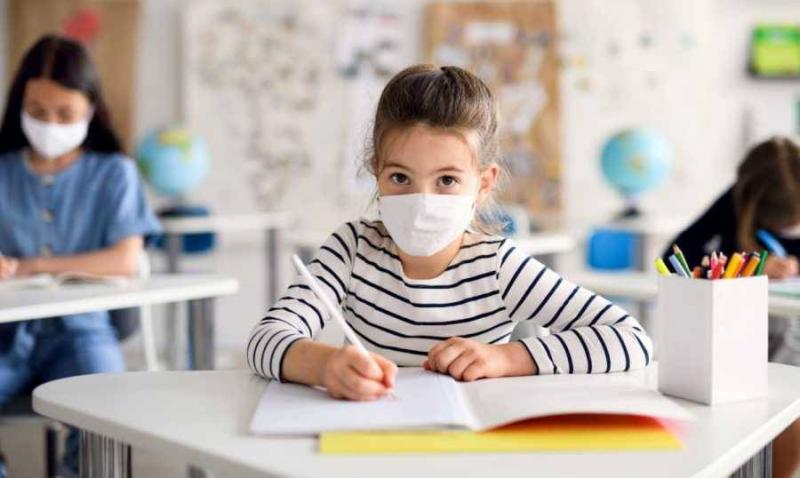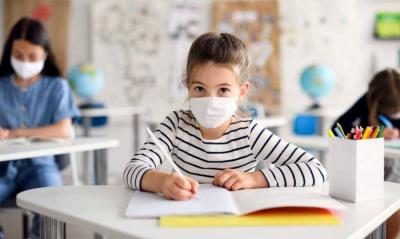The holiday season in Lebanon barely ends, with all its hustle, noise, gatherings, and meetings, before discussions about epidemics and infectious diseases resurface. Topics related to COVID-19, cholera, and influenza become the talk of the hour. In recent years, the world's residents have suffered from the repercussions of the COVID-19 pandemic, overshadowing other living, political, economic, and health crises. Today, all eyes in Lebanon are on a new phase of epidemics and infections.
As Lebanon tries to catch its breath after years of multifaceted crises, it is once again confronted with a wave of viruses and infections, including a new surge of COVID-19. Just when the number of infections drops, the virus knocks on the doors of the Lebanese people again, imposing itself as an "unwelcome guest." In light of what Public Health Minister in the caretaker government, Firas Al-Abyad, stated about the increase in the positivity rate of tests to 12.7%, up from between 5.5% and 6% in early December, Bilel Abdullah, head of the health committee in the parliament, reassured "Nidaa Al-Watan" that "cholera is under control, but COVID-19 infections increased after the holidays, which was expected due to the return of expatriates to Lebanon, along with mixing, nightlife, and celebrations. This is a natural and expected occurrence post-New Year, but the numbers remain acceptable."
Regarding the nature of the infectious diseases that have recently begun to invade Lebanon, Abdullah pointed out that "the spread of influenza is normal and occurs every year, particularly in winter. There have been cases in the past two months; according to the Ministry of Health, the numbers were within expectations, and the infection rates were typical." However, he confirmed that the H1N1 virus has been particularly severe for some of those infected.
Regarding the likelihood of implementing measures at educational institutions, especially since influenza swept through schools before the holidays, with numerous cases and the closure of some classes, as well as severe and contagious symptoms appearing among many students, leading to hospitalizations, Abdullah confirmed to "Nidaa Al-Watan" that "no major national measures will be taken. What is required at this stage is to follow preventive guidelines and personal measures. Sick individuals should refrain from going to schools or crowded places and take necessary precautions." He added, "The Ministry of Health and relevant authorities are following these matters, but so far, there are no recommendations to postpone the return to schools," urging a reduction in gatherings, minimizing interaction with others, and emphasizing personal prevention to prevent a surge in infections in the coming period.
Regarding the current situation of epidemics in Lebanon, which has led to worsening conditions and renewed discussions about infectious diseases, Dr. Najib Aoun, a specialist and head of the infectious and microbial diseases department at Clemenceau Medical Center, noted in an interview with "Nidaa Al-Watan" that "there is a collapse of basic infrastructure in Lebanon, and these infrastructures are merely indicators and factors that support or hinder the health situation. Among the factors contributing to the resurgence of these diseases is the lack of vaccinations that we have seen in the past three or four years and the lack of awareness about preventing epidemics or infections that manifest as preventable diseases to avoid fatalities. Additionally, awareness in this area is almost absent from the Ministry of Health, which rarely acts unless an emergency occurs."
He believes that prevention in this field, and in epidemiology, begins with vaccinating children and individuals with weakened immune systems—especially those over 40 years of age who face health issues, allergies, or chronic diseases. Attention should also be given to ensuring that vitamin levels in the body are acceptable and normal, particularly vitamin D and iron, to enhance immunity. This is an effective step that helps reduce both the number of infections and fatalities.
Dr. Aoun highlighted that "infections have re-emerged, and they are seasonal, such as the influenza virus, which is divided into two types 'A' and 'B': type 'A' includes H1N1 and H3N2, which have vaccines that were not administered this year as in previous years due to their high costs and the low number of vaccines that reached Lebanon recently, along with the lack of mask-wearing in schools and universities, leading to these infections surfacing."
He continued, "In the past three years, we have witnessed the emergence of the COVID-19 pandemic that affected many, and new infections have resurfaced that were not present globally, particularly in European and American regions that we often aspire to emulate, such as the 'A' hepatitis epidemic, chickenpox, measles, and cholera."
Regarding the responsibility of relevant entities in curbing the number of infections and preventing the spread of viruses in Lebanese society, Dr. Aoun stated that "the Ministries of Health and Education delayed issuing directives and guidelines, resulting in an increase in infections and hospital admissions. This health situation imposes expenses amidst the financial crisis we are experiencing; however, this will lead to fatalities and additional hospitalizations, increasing national problems."
He added, "There is no doubt that the Ministry of Health acted in this regard, but only after the cases exacerbated. Here, we must pause at the necessity of awareness, securing the necessary vaccinations, providing treatments for patients and those infected, and improving infrastructures such as sewers and sanitation systems, to prevent the increase of 'A' hepatitis cases, mainly found in northern Lebanon, as well as cholera entrenched also in the north and in refugee-hosting areas. The responsibility here falls on the Ministry of Health or the relevant ministries."
Dr. Aoun pointed out that the Ministry of Health is accountable through consulting specialists, such as epidemiologists, and doctors who work within the scope of the World Health Organization (WHO), to provide appropriate guidance to other ministries for action. For example, the Ministry of Health can offer the necessary guidelines to secure electricity, which is crucial for the processes of sanitation and sterilization, and to power refrigeration units thereby preventing cases of 'A' hepatitis, typhoid, and cholera.
Thus, the responsibility for preventing these widespread viruses lies on the Lebanese citizen, who must follow the guidelines and instructions amidst the state’s almost complete absence. To prevent health crises and challenges from resurfacing, every citizen must take responsibility for themselves first and their community second, so that the year 2023 does not resemble previous years, avoiding a repeat of the 2020 scenario with all its challenges, regulations, and crises.




